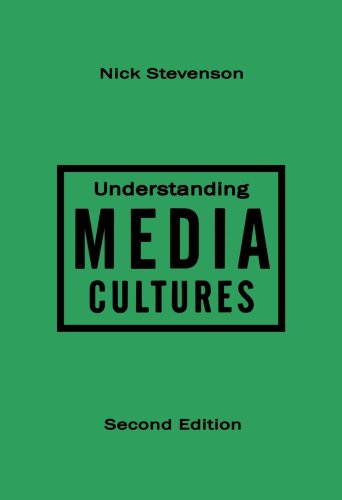

Most ebook files are in PDF format, so you can easily read them using various software such as Foxit Reader or directly on the Google Chrome browser.
Some ebook files are released by publishers in other formats such as .awz, .mobi, .epub, .fb2, etc. You may need to install specific software to read these formats on mobile/PC, such as Calibre.
Please read the tutorial at this link: https://ebookbell.com/faq
We offer FREE conversion to the popular formats you request; however, this may take some time. Therefore, right after payment, please email us, and we will try to provide the service as quickly as possible.
For some exceptional file formats or broken links (if any), please refrain from opening any disputes. Instead, email us first, and we will try to assist within a maximum of 6 hours.
EbookBell Team

4.8
34 reviews 
ISBN 10: 076197363X
ISBN 13: 978-0761973638
Author: Nicholas Stevenson
The Second Edition of this book provides a comprehensive overview of the ways in which social theory has attempted to theorize the importance of the media in contemporary society. Understanding Media Cultures is now fully revised and takes account of the recent theoretical developments associated with New Media and Information Society, as well as the audience and the public sphere.
Introduction
Chapter 1: Marxism and Mass Communication Research: Debates within Political Economy and Ideology
Marxism, Political Economy and Ideology
Raymond Williams: Communications and the Long Revolution
Cultural Materialism and Hegemony
Raymond Williams and Material Culture: Television and the Press
Raymond Williams and Communication Theory
The Glasgow University Media Group and Television Bias
Two Case Studies: Bad News and Good News
The Eye of the Beholder and Objectivity in Media Studies
Ideology and the Glasgow University Media Group
Stuart Hall, Mass Communications and Hegemony
Policing the Crisis: The Press, Moral Panics and the Rise of the New Right
Ideology: The Return of the Repressed?
Encoding and Decoding Media Discourse
The Over-Inflation of Discourse and other Related Critiques
Summary
Chapter 2: Habermas, Mass Culture and the Public Sphere
Public Cultures
The Bourgeois Public Sphere
Habermas, Mass Culture and the Early Frankfurt School
Problems with Mass Culture: Habermas and the Frankfurt School
The Public Sphere and Public Broadcasting
Habermas, the Public Sphere and Citizenship
Summary
Chapter 3: Critical Perspectives within Audience Research: Problems in Interpretation, Agency, Structure and Ideology
The Emergence of Critical Audience Studies
David Morley and the Television Audience: Encoding/Decoding Revisited
Semiotics, Sociology and the Television Audience
Class, Power and Ideology in Domestic Leisure
John Fiske and the Pleasure of Popular Culture
Life's More Fun with the Popular Press
Pointless Populism or Resistant Pleasures?
Feminism and Soap Opera: Reading into Pleasure
Feminism, Mass Culture and Watching Dallas
Psychoanalysis, Identity and Utopia
Reading Magazine Cultures
Feminism and Critical Theory
Summary
Chapter 4: Marshall McLuhan and the Cultural Medium: Space, Time and Implosion in the Global Village
Technical Media
Innis, McLuhan and Canadian Social Theory
The Medium is the Message
Space and Time: Technology and Cultural Studies
Oral, Print and Modern Cultures: Jack Goody and Anthony Giddens
More Critical Observations
Summary
Chapter 5: Baudrillard's Blizzards: Postmodernity, Mass Communications and Symbolic Exchange
Postmodernism as a Heterogeneous Field
Baudrillard, Althusser and Debord
Postmodernism, Symbolic Exchange and Marxism
The French McLuhan: Simulations, Hyperreality and the Masses
Baudrillard and Jameson
Baudrillard's Irrationalism
Summary
Chapter 6: New Media and the Information Society: Schiller, Castells, Virilio and Cyberfeminism
Herb Schiller and Media Imperialism
Informationalism, Networks and Social Movements: Manuel Castells
The Limitations of Informational Politics
Virilio, Speed and Communication
Virilio and the Media of Mass Communications
Critical Questions within Cyberfeminism
Summary
Chapter 7: Conclusion
The Three Paradigms of Mass Communication Research
Possible Futures
understanding media cultures social
understanding media cultures social theory and mass communication
from media systems to media cultures understanding socialist television
how does social media affect culture
what is media culture and society
Tags: Nicholas Stevenson, Understanding, Media, Cultures, Social Theory, Mass Communication